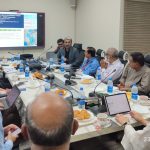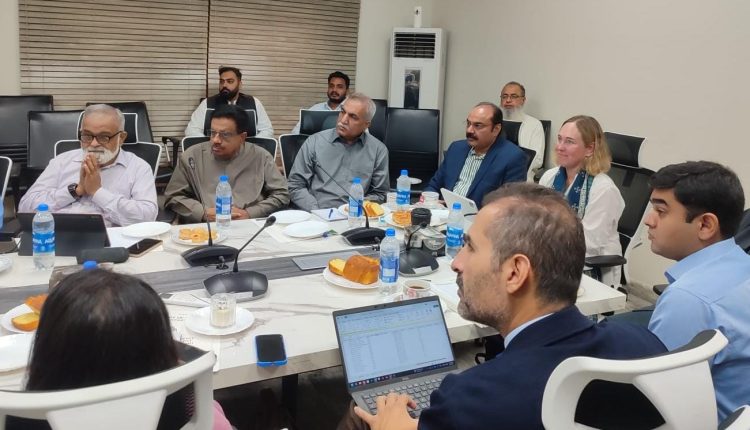World Bank Praises Sindh’s Swift Post-Flood Recovery
SFERP rebuilds resilient infrastructure, restores livelihoods, and strengthens climate preparedness ahead of schedule
By Aleena Fatima
KARACHI: A World Bank Mission visited the Sindh Flood Emergency Rehabilitation Project (SFERP), jointly implemented by the Sindh Irrigation Department and the Sindh Planning & Development Department, and lauded its successful completion. Launched after the devastating 2022 floods, the project has rehabilitated critical infrastructure, revived livelihoods, and boosted Sindh’s capacity to withstand future climate disasters.
The World Bank delegation included Ms. Catherine Signe Tovey, Practice Manager for Urban, Resilience, and Land (URL); Salim Rouhana, Lead Urban Specialist; Davison Muchadenyika, Senior Urban Development Specialist; Bilal Khalid, Disaster Risk Management Specialist; Yoko Okura, Disaster Risk Management Specialist; Nihan Rafique, Disaster Risk Management Specialist; and Nazia Parveen, Team Assistant.

Enhancing Climate Resilience:
Under its “build back better” approach, the SFERP reconstructed flood-damaged infrastructure with improved engineering standards, ensuring resilience against future disasters. Lessons learned from the 2010 floods informed project strategies, making recovery more sustainable and equitable.
Praising the initiative, Ms. Catherine Signe Tovey commended the Government of Sindh for completing the project ahead of schedule and maintaining high-quality standards.
“In light of Pakistan’s increasing vulnerability to climate-related disasters, building flood resilience is not just important, it is urgent,” she said, stressing the importance of collective and sustainable efforts.
Implementation and Impact:
Ghulam Asghar Kanasro, Project Director (P&D Department Component), highlighted that the project restored livelihoods, enhanced technical capacity of government personnel, and addressed socio-economic vulnerabilities. He emphasized special focus on women, children, and marginalized communities to ensure equitable recovery.
On the occasion, Muhammad Aslam Laghari, Deputy Project Director, and representatives from Rescue 1122, including Dr. Abid Jalal Uddin Shaikh, Chief Operating Officer, and Lt. Col. Sardar Ali Shah, Director Administration were also present.
Representing the Irrigation Component, Zahid Hussain Shaikh, Senior Water Resource Specialist, and Shakeel Ahmed, Additional Director, briefed the delegation on infrastructure investments. They noted that strict adherence to building codes, technical audits, expert engineering reviews, and on-site monitoring ensured long-term durability and climate resilience.
The World Bank underscored that Sindh’s proactive recovery approach under SFERP could serve as a model for disaster-hit regions. By restoring livelihoods and fortifying infrastructure against future climate events, the project reflects both resilience and readiness.

